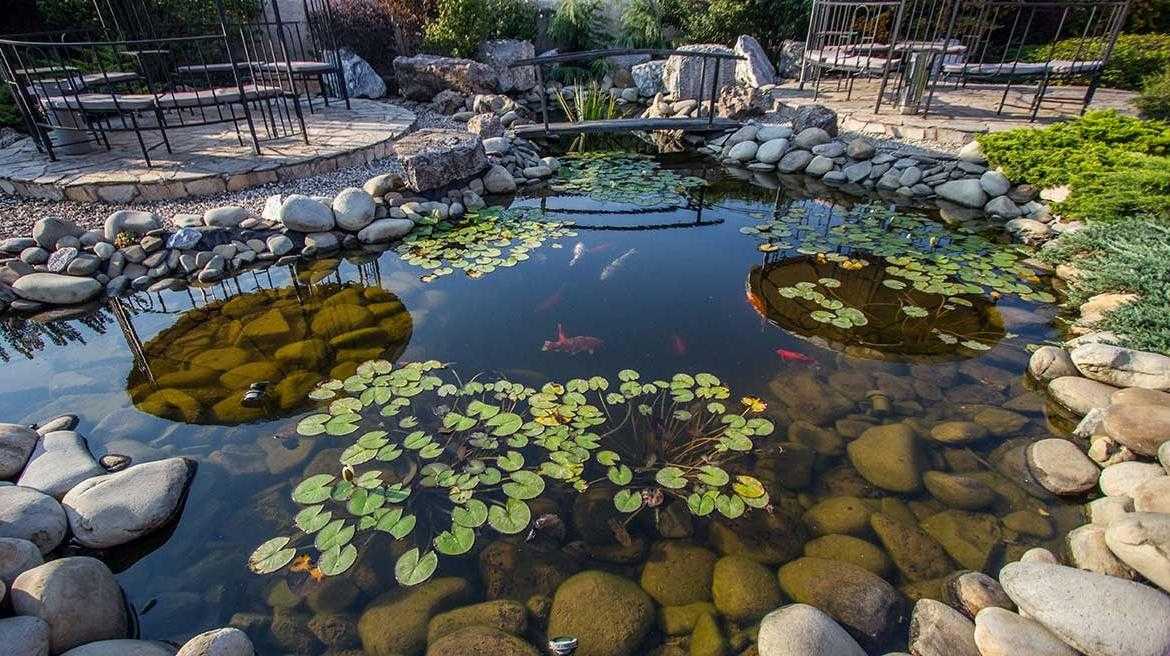(Podcast Episode)
How To Properly Maintain Your Pond
Pond maintenance is keeping your pond clean, healthy, and functioning correctly.
It is essential to maintain your pond because a dirty or poorly functioning pond can be a breeding ground for harmful bacteria and parasites and can negatively impact the plants and animals living in and around the pond. Here are some tips for maintaining your pond:
Keep the water clean by regularly removing debris.
Keeping the water clean is one of the most critical aspects of pond maintenance. One way to do this is by regularly removing debris from the water, such as fallen leaves and twigs. These types of debris can not only make your pond look unsightly, but they can also contribute to poor water quality.
Leaves and twigs can decompose in the water, releasing nutrients that can lead to excessive algae growth. This can cause problems such as low oxygen levels and harming fish and other aquatic life. Additionally, fallen leaves can also provide a breeding ground for mosquitoes and other pests, which can be a nuisance for you and your family.
Monitor the pH levels of the water
Monitoring the pH levels of the water in your pond is an important aspect of pond maintenance. pH is a measure of the acidity or basicity of the water, with a pH range of 0 to 14, where 7 is neutral, less than 7 is acidic, and greater than 7 is basic.
Different plants and animals have different pH requirements for survival, and it’s vital to ensure that the pH level of your pond is within a healthy range for the specific plants and animals in it.
Keep an eye out for signs of disease or parasites in the plants and animals living in the pond.
Keeping an eye out for signs of disease or parasites in the plants and animals in your pond is essential to pond maintenance. Diseases and parasites can significantly impact the health and well-being of the plants and animals in your pond. If left untreated, they can lead to a decline in the overall ecosystem of your pond.
Some common signs of disease or parasites in fish include lethargy, loss of appetite, cloudy eyes, and abnormal swimming behavior. If you notice these signs in your fish, you must take them to a veterinarian or a fish expert for diagnosis and treatment.
Regularly check the pond’s water level.
Checking the water level in your pond is an important aspect of pond maintenance. The water level of your pond can significantly impact the health and well-being of the plants and animals living in it, and if left unchecked, it can lead to a decline in the overall ecosystem of your pond.
One of the most important reasons to check the water level is to ensure that it remains stable. This is especially important during the summer when evaporation and water loss due to increased temperature can occur. If the water level becomes too low, it can cause problems such as low oxygen levels, which can harm fish and other aquatic life and lead to a dry-out of plants, which can cause damage or death. On the other hand, if the water level becomes too high, it can cause flooding and erosion, which can harm plants and animals in the surrounding area.
Add beneficial bacteria to the water.
Adding beneficial bacteria to the water in your pond is an important aspect of pond maintenance. Beneficial bacteria are microorganisms that help break down excess nutrients in the water, leading to a cleaner, clearer, and healthier pond. They also play an important role in the pond’s ecosystem by helping to maintain the balance between the different types of microorganisms in the water, which can help reduce the risk of harmful algae and bacteria growth.
There are several ways to add beneficial bacteria to your pond, including using pond-specific bacteria products, using natural sources such as compost tea, or adding plants that are known to have beneficial bacteria.
Conclusion
Following the tips outlined in this newsletter and regularly maintaining your pond, you can ensure that it stays clean, healthy, and functioning correctly for years to come. Regular pond maintenance can help prevent a wide range of problems, such as poor water quality, disease, and parasites, which can negatively impact the plants and animals living in and around the pond. It also helps keep the pond’s ecosystem in balance, which will keep it looking beautiful and make it a great place to relax and enjoy the pond’s natural beauty.

